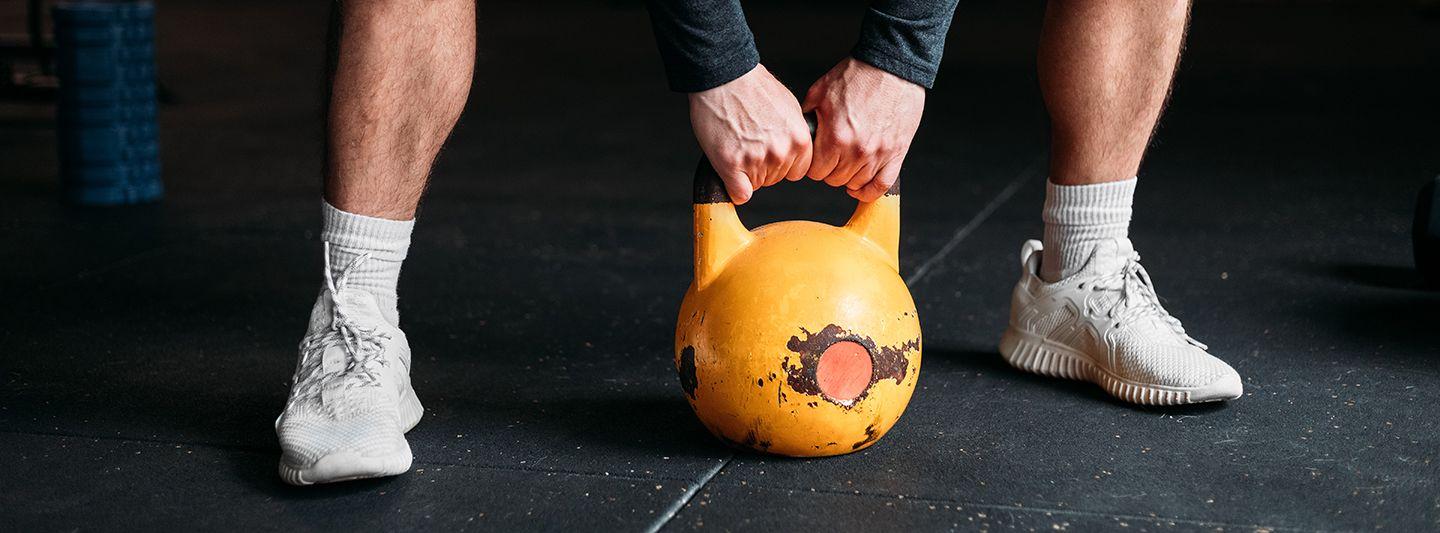Exercise and your glucose
Regular exercise helps to burn glucose and improves your overall glucose control. Learn more about how workouts affect your glucose levels here.
Christina Stiehl,
Managing Editor
Pamela Nisevich Bede, MS, RD, CSSD, LD,
Medical Affairs
Published:
February 17, 2025
Read time:
5 minutes

Start Lingo today for just $49
Learn how your body responds to food and exercise with a 2-week plan*, no commitment.
Buy now
You have a lot of muscles, and they all need fuel. What is our body’s favorite type of fuel? Glucose. 1 Glucose is found circulating in your blood or even stored as glycogen. When glucose is limited, your body adapts and breaks down fats for energy (or even proteins if it gets desperate). 2 Exercising regularly helps burn glucose and improve overall glucose control, so try to add more movement to your daily routine. 3
Your body’s demand for fuel is only as intense as your workout. High-intensity exercise increases adrenaline (the fight-or-flight hormone), which signals to your body that it’s time to break down liver glycogen to glucose. 1 This quick influx of fuel can spike your glucose, but this is the one time a spike is a good thing.
When you track more intense workouts and see a spike, don’t be alarmed. Lingo won’t count those exercise-related spikes against your Lingo Count, so jump back in and remember to track that more intense activity in the app.
Seeing a spike, but you haven’t had an intense workout? There are other reasons for spikes. Stress and poor sleep can affect how your body uses glucose, and eating a lot of carbohydrates or carbs on their own will often lead to a spike.
When shifting to a lower carb diet, but not low enough to shift into ketosis and burn fat for fuel, the limited glycogen is quickly spent without the support of ketones, which accompany a properly designed, high-fat approach. This prompts your body to turn to protein for fuel. But you can help prevent the breakdown of protein (and muscle) for fuel by making sure you have fuel in the tank a few hours before a workout. 4 And after your workout, remember to recover with enough protein and carbs to build muscle and replenish your glucose supply during your post-workout recovery phase.
So, take this back into your daily life. Better prepare, perform, track, and recover. More power to you.
A final note from Lingo
Your body uses glucose as fuel for exercise, and the more intense the exercise, the more fuel it needs. Exercising regularly can help improve your overall glucose levels, so be sure to make room for some physical activity in your weekly routine where you can.
The Lingo Glucose System is intended for users 18 years and older not on insulin. It is NOT intended for diagnosis of diseases, including diabetes.
The Lingo program does not guarantee that everyone will achieve the same results as individual responses may vary. Consult your healthcare professional before making changes to your diet or exercise regimen or if you have an eating disorder or a history of eating disorders.
© 2025 Abbott. All rights reserved. The biosensor shape and appearance, Lingo, and related brand marks are marks and/or designs of the Abbott group of companies in various territories. Other marks are the property of their respective owners.
ALB-02190
Published:
February 17, 2025
Read time:
5 minutes


Christina Stiehl is the Managing Editor at Lingo. She graduated from the University of Missouri School of Journalism and has more than a decade of professional editorial experience in the health and wellness industry. Christina has written for top media publications including SELF, PS, Shape, Well+Good, Thrillist, and VICE before pivoting to leading content at health tech companies.


Pamela Nisevich Bede, MS, RD, CSSD, LD, is a certified specialist in sports dietetics and an expert in nutrition communications. Pam earned her Bachelor of Science degree in Dietetics from Miami University and a Master of Science in Medical Dietetics from The Ohio State University. While at Abbott Nutrition, Pam was the Global Nutrition Lead at Zone Perfect Nutrition and Ensure and was previously the Manager of Nutrition Marketing at EAS Sports Nutrition.
A healthy choice for your inbox
Sign up for Lingo emails to get science-backed tips, special offers, and The Journey Newsletter.
Start Lingo today
for just $49
Learn how your body responds to food and exercise with a 2-week plan*, no commitment.
- 1 Lingo biosensor with minute-by-minute glucose monitoring.
- Full access to the Lingo app.
- Available over the counter. No prescription needed.
- Works with iOS and AndroidTM
Shop now
Free shipping | 30-day money-back guarantee†
*No commitment. This plan does not auto-renew.
†30-day money-back guarantee is for first time purchases only

